Lenny Kravitz: “The bass is a soulful monster that keeps everyone moving”
The legendary multi-instrumentalist on all things bass
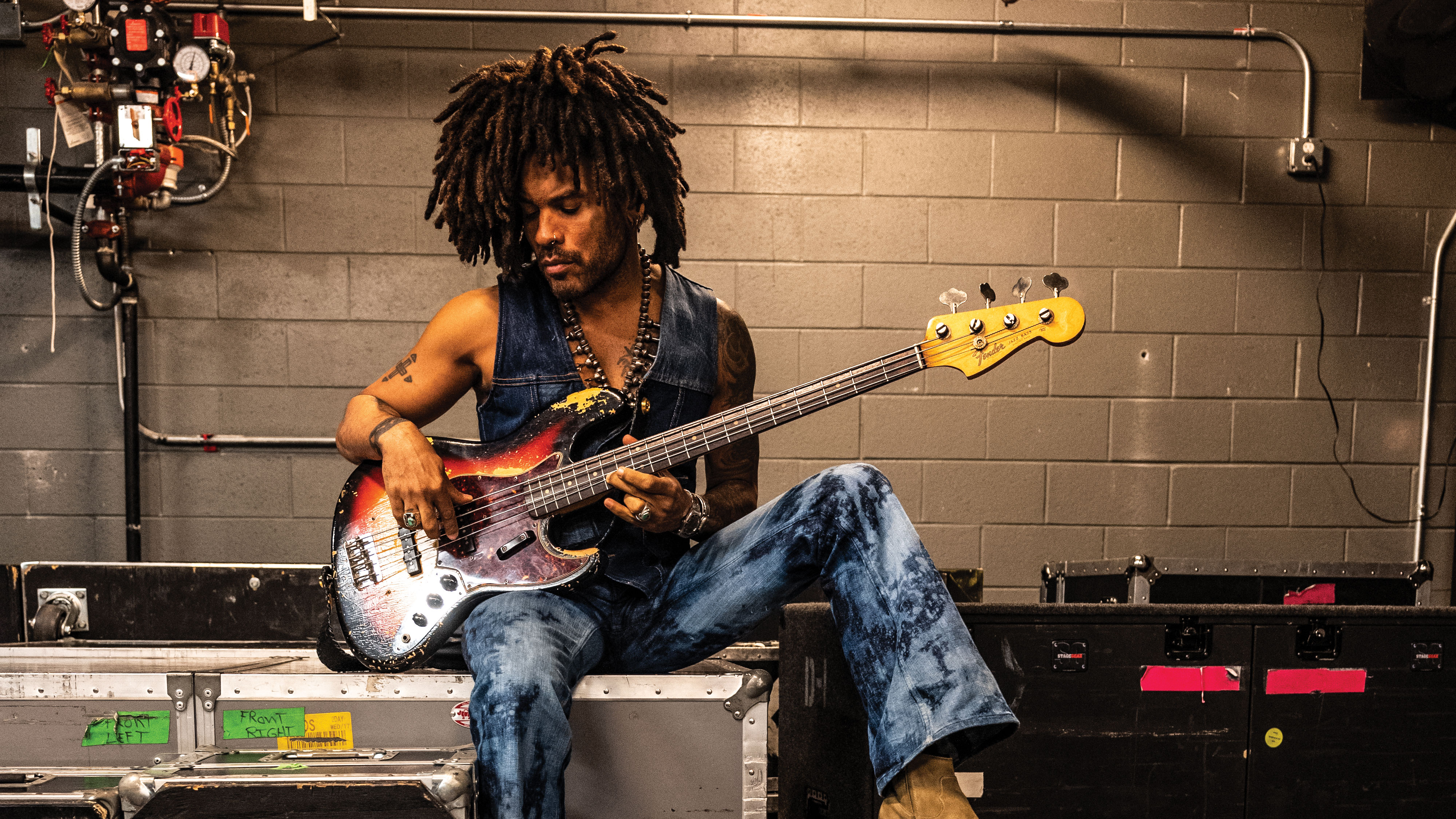
Let’s face it - Lenny Kravitz is a certified rock god.
His guitar hero and superstar status would be impressive enough if it wasn’t always competing for the spotlight with his model good looks, his undeniable swagger, his cutting-edge fashion, his larger-than-life persona, and his downright cold-blooded ability to rock arenas across the globe.
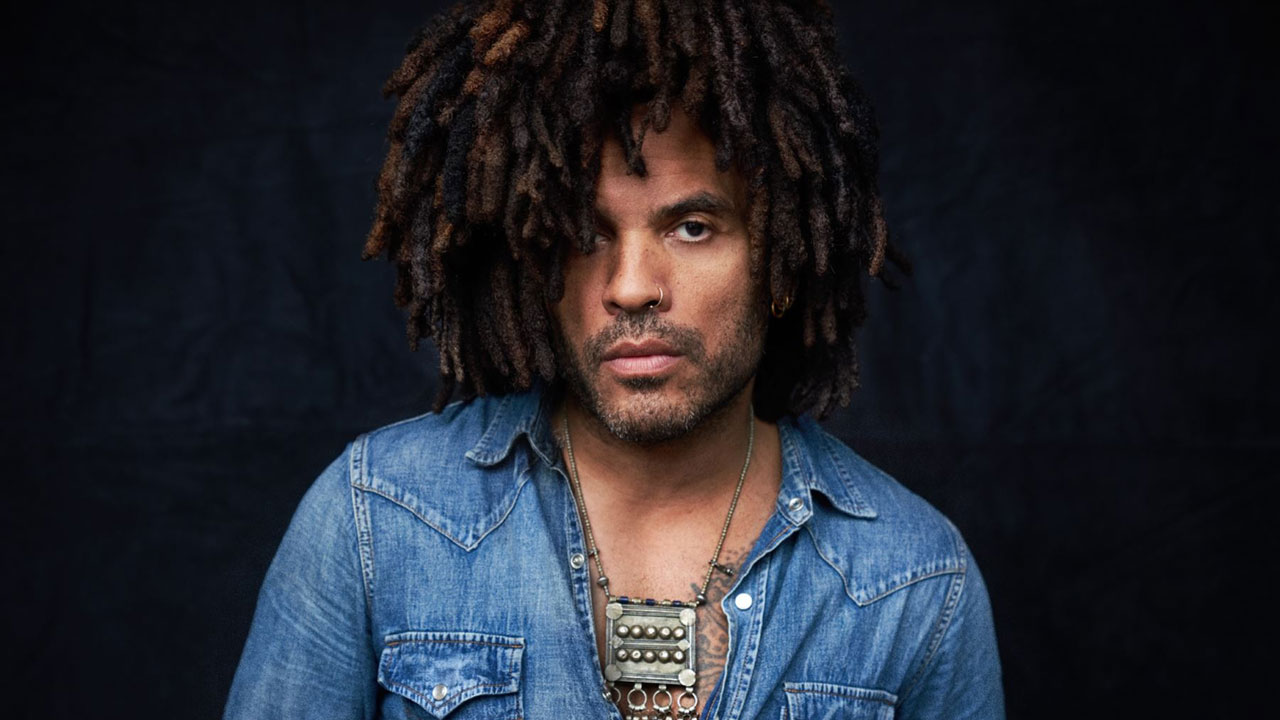
To celebrate the 30th anniversary of Let Love Rule, Lenny Kravitz has announced an exclusive UK date at The O2, London on Tuesday 11 June 2019. Support comes from Corinne Bailey Rae and protest rock collective Brass Against. Tickets are available from AEG.
We get it; the man is a self-taught multi-instrumentalist who plays everything that he picks up - from a drum kit to a piano, to a damn triangle, even - at a master level. He’s even a recording studio ace who has produced every one of his albums himself, which, by the way, have won copious amounts of awards and have gone platinum more times than he’s redefined his image, and that’s a lot.
And if he already wasn’t a generation gap-breaking household name, he went and starred in The Hunger Games in 2012 and ’13, a series of blockbuster movies which earned him high praise from even the staunchest of critics.
We could go on and on about his fame, his accomplishments, and his trendsetting ways, but we’re actually not going to talk about any of that. Not one bit. And that’s because for the first time in his triumphant 37-year career, Kravitz is sitting down to chat with us exclusively about the bass guitar - something he’s very passionate about.
It might not be what sparked his fame, gets him on late-night talk shows, lands him in the pages of GQ or bags him his next starring role in Hollywood, but the 54-year-old takes his bass playing very seriously. Just listening to him talk about his four-string heroes Bootsy Collins, Larry Graham, Verdine White and James Jamerson, you can hear the excitement in his voice. Our chat kicks off with Kravitz fondly recalling when he first got hipped to the bass as a budding young musician.
“I started playing bass right around my junior high and high school days, when I was out in Los Angeles,” he remembers.
Get the MusicRadar Newsletter
Want all the hottest music and gear news, reviews, deals, features and more, direct to your inbox? Sign up here.
“I’ve always loved bass, and especially when listening to funk music, I was always attracted to it. I originally got some cheap, no-name four-string and I just started learning on it. I couldn’t put it down. I was already playing guitar, piano and drums, so bass was the last instrument that I added to my repertoire, but it’s one that really grabbed me and sucked me into it.”
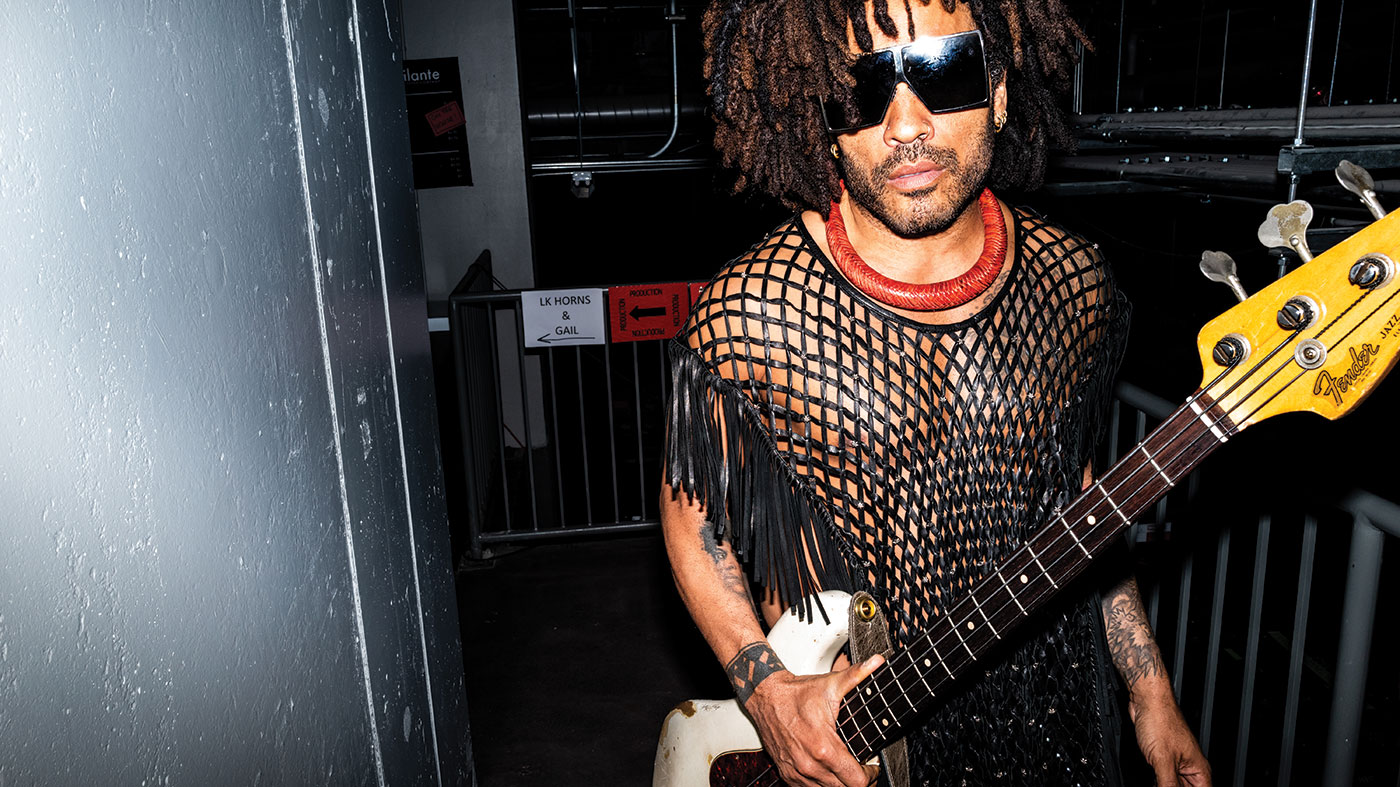
Raise vibration
The bass has gone on to become a staple of Kravitz’s music, ever since he first burst onto the top of the mainstream charts with his 1993 hit album Are You Gonna Go My Way, where his love of rock, blues, reggae, pop, and psychedelic funk erupted through his songwriting and onto the radio.
While the bulk of the attention is typically directed at his monster guitar playing and soulful vocals, Kravitz’s stylistic approach to his basslines has always been just as important to him.
“A good bassline should be something that exists on its own and carries the song,” he explains. “Sometimes on a straight rock track it sounds best for the bass to follow the guitars while adding some fills and runs. But I love a bass part that drives the melody and the rhythm and becomes something that sticks with you that you’ll hum later on.
I listen to the track and let it play, and I put the bass in my hands, and the line just comes out. I don’t even think about it
“For instance, any James Brown song you mention, I could easily hum you the bassline because it’s the centre of the track. And it’s so simple, like ‘ba-dum, da-dum, boow, badum, ba-dum, boow’. But the dude playing is grooving his ass off and he’s playing it with feel, and he can take those few simple notes and make you feel it in your body. That’s what bass is all about to me. Bass is an instrument that has the ability to get into your bones and make you move.”
Luckily for Kravitz, writing catchy lines is an instinctual activity that he approaches organically with the rest of his songwriting process.
“My basslines just come out; I don’t even think about them at all,” he says. “The first thing I lay down is the drums, and then I usually lay down the main guitar part. Then maybe I’ll lay down keys or another guitar riff, or at least I’ll have enough on the track to feel comfortable with it. Then I listen to the track and let it play, and I put the bass in my hands, and the line just comes out. I don’t even think about it.
“I’m very intuitive, and when I’m inspired it just comes through me. As I’m the guy playing all of the instruments on every track, and being my own producer too, that allows me to not have to talk to anyone or explain anything. I just do it and react, and naturally the counterpart comes out.”
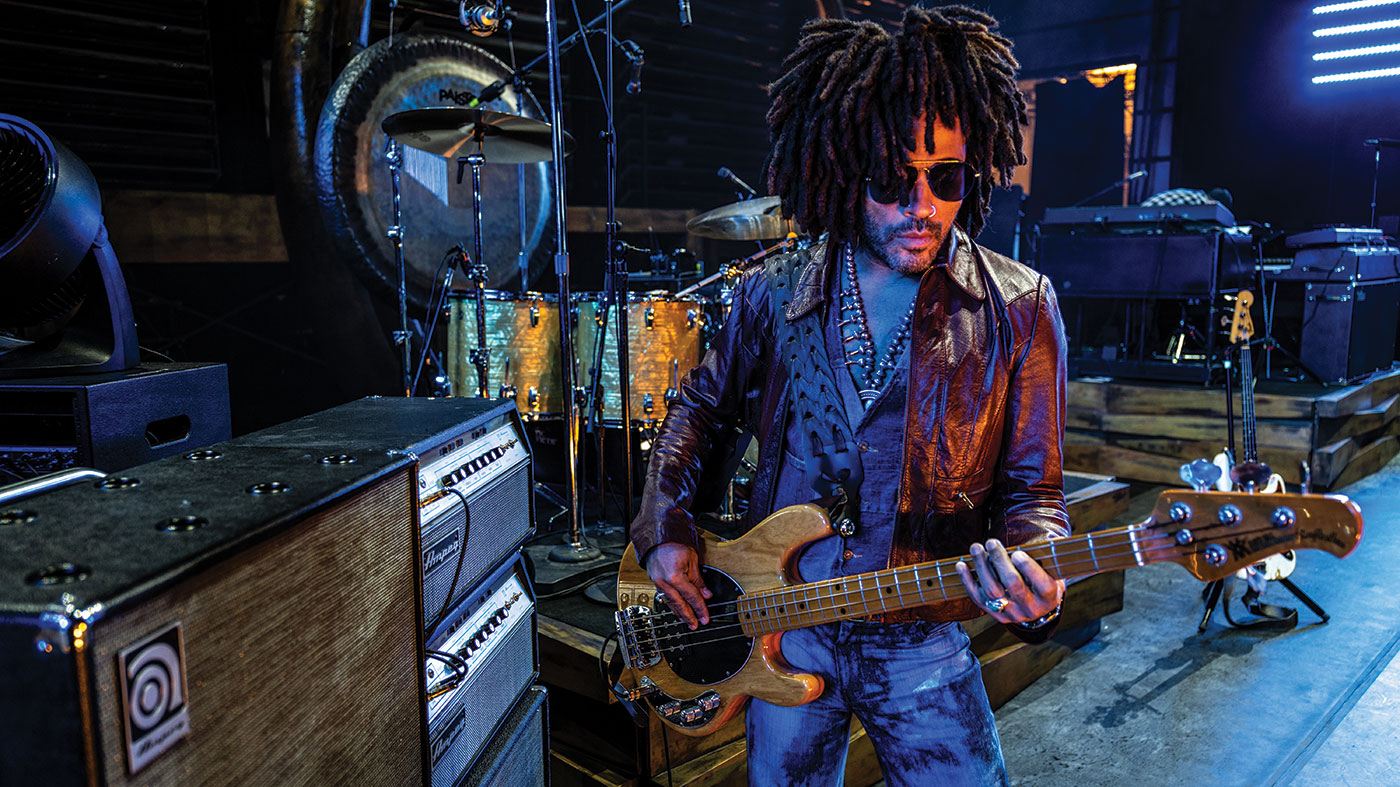
His latest album, Raise Vibration, was no exception to this free-flow process, as he wrote the 12-song LP in the span of two weeks and then produced the record himself at Gregory Town Sound Studios in the Bahamas.
Each song, Kravitz claims, came to him in a dream, which subsequently led to a very sleepless time period with very productive results. He also chose to look at each track as an individual entity, which led to a very different approach to how he dialled in his bass tone on each song.
“Every track was a completely different session, and I approached each song with a fresh headspace. That way I knew instinctually that something should be played on a Fender Precision instead of a Jazz. I know the sounds of all of my basses inside and out, so in the studio I know that this specific bass is inherently better on its own without EQ; just straight through the amp. And maybe this bass sounds great, too; maybe I like the mids, but the bottom isn’t as round.
“So I pick a bass and then from there I add processors, first from the amplifier and then from the EQ in the racks and the decks. That way I can control if it should be cleaner, fatter, or woodier sounding, if I want to hear more of the bass’s natural timbre. I might want to hear my fingers more, or add fuzz, or distortion. Every track is its own journey for the bass. I want it to be fresh every time.”
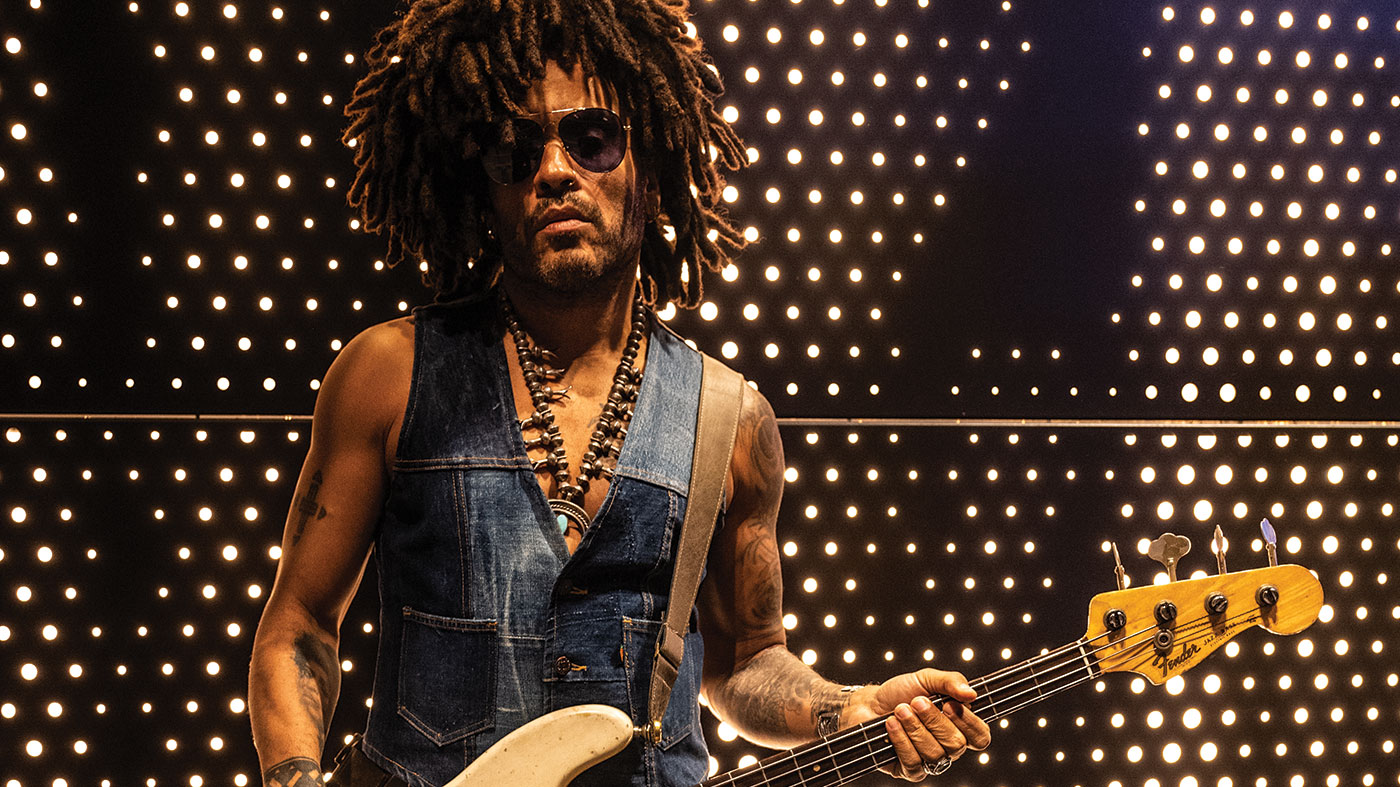
Persona
In this he succeeded, as the new album moves seamlessly through different vibes, and in some cases different genres entirely. Tracks such as 5 More Days, Low and The Majesty Of Love display Kravitz’s ability to groove deep in the pocket and lock in tight with his drums, while the smoothed-out feel of It’s Enough makes bass the centrepiece of the entire song.
Every instrument in every one of my songs takes on a persona of the player I envision should be playing it
“I’m one person doing everything on each track, but I always take on different personalities when I play each one,” he tells us. “Every instrument in every one of my songs takes on a persona of the player I envision should be playing it. So I kind of see who they are and what kind of musician they are, and I take on their character to capture their feel. For It’s Enough, the main riff is very smooth and almost vocal-driven. Then when I come in later with those Temptations-type vocals, I’m just mirroring the bass and diverting slightly on a few notes to give it some rub. But that bassline is the centre of the track for sure. That’s what that song called for.”
To achieve the different tones conveyed by his many different personalities in the studio, Kravitz enlists an impressive arsenal of basses, collected over the years.
“I’m very particular about the basses I use and I’m lucky to have the selection that I do. For a long while I’ve had a 1962 Fender P-Bass that is Olympic white, which was played on a bunch of Jackson 5 records. I have a 1964 Precision in a natural finish, a 1962 Jazz in sunburst and a 1965 baby blue Jazz; those are my main studio basses that do not leave the studio - ever!”
He continues: “On Low, when the real bass part comes in in the second part of the verse, and I’m popping to get that Louis Johnson kind of sound, I’m using a 1974 Music Man Stingray. Then I have a Rickenbacker 4001 in Jetglo, a 4000 in Fireglo and a Gibson EB3 in aged Pelham Blue, which is gorgeous. That’s the bass that’s on [his 1991 hit] Always On The Run. That’s my main collection.”
For his rig, Kravitz keeps his setup simple. “This time around I was very consistent with my bass amps. I use an Acoustic 220 that I keep in the studio. The cabinet is out in the booth; it’s an Acoustic Horn-Loaded 407 2x15. That was basically the whole album. I also have an Ampeg Classic SVT-VR and an Ampeg Portaflex PF-20T that I love, but didn’t really use this time around. On a couple of tracks I went direct into an API Mic Tree if that’s what I was feeling for it.”
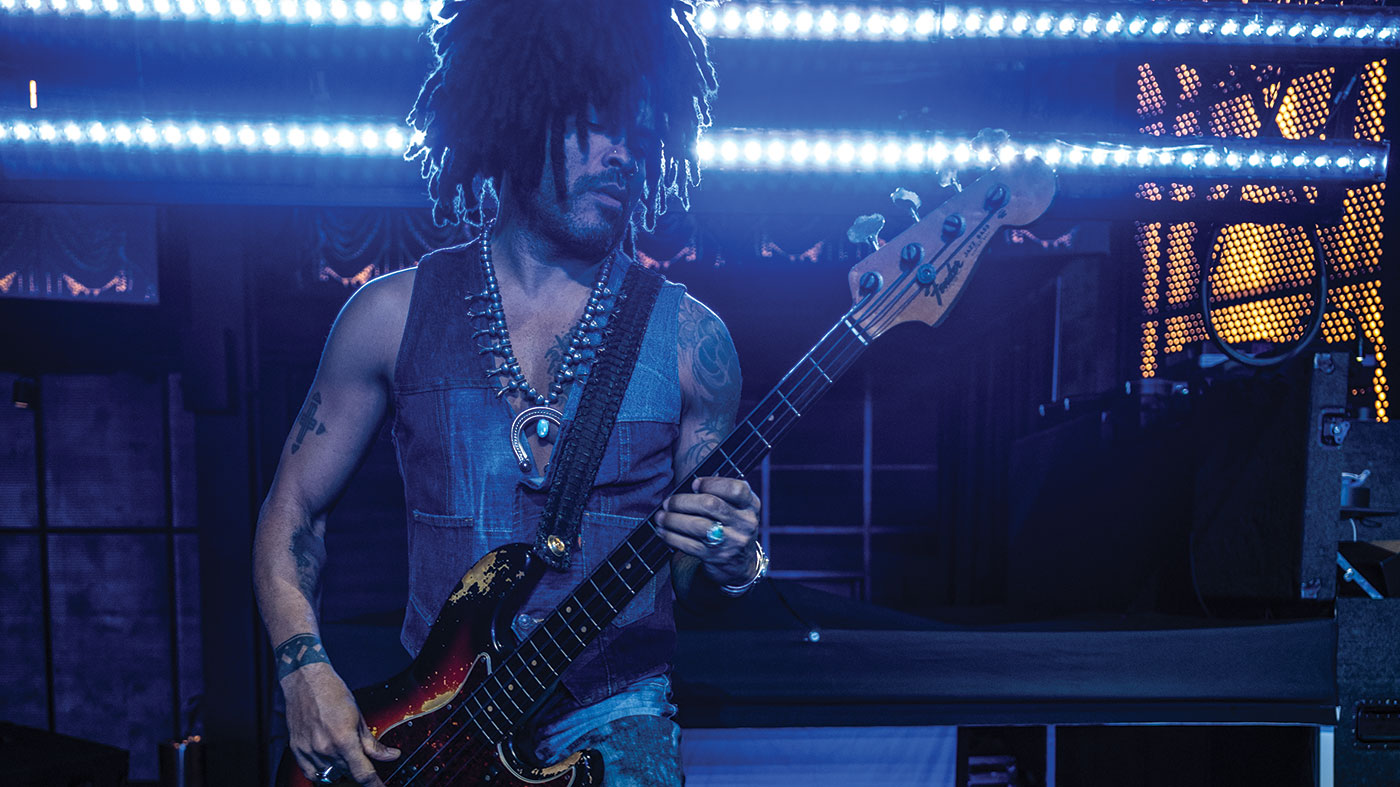
Percussion vs melody
In attempting to maintain his authenticity on bass, Kravitz has spent his lifetime on the instrument cultivating and honing his techniques, which he uses appropriately throughout Raise Vibration.
“I primarily use fingerstyle with my middle finger and my index finger, and I dig in when I need to, but again, it’s all about dynamics,” he explains. “Sometimes I use the really fleshy part of my finger, so that it’s fat and there’s no knocking. Sometimes I knock it with the tip of my finger to get that punch so it adds some midrange. Then I have a real fingery style, like on Majesty Of Love, where I’m playing a bunch of licks and it’s very pointy-sounding.
I look at the bass almost as a drum, or a percussion instrument. That comes out when I play my popping style
“I look at the bass almost as a drum, or a percussion instrument. That comes out when I play my popping style, where I use my thumb against the low string and I pluck on the high strings, which is very much inspired by Larry Graham in a very old-school, dirty funk way. Then I go to my Louis Johnson thing, which is a bit cleaner in the studio, with a Music Man or a Fender. All of my techniques originate from all the different records I grew up listening to.”
Faced with the necessity of having to shred his guitar parts live, Kravitz requires the help of fellow low-enders for his live shows; in the past these duties have been handled by Tony Briet and longtime sideman Jack Daley. However, for the past few years, the talented Gail Ann Dorsey has held down the bass chair for Kravitz. He’s infinitely grateful for this, he says.
“Gail is simply amazing. She’s such a great musician with a remarkable ear. She’s well versed in many genres of music, and her playing is so damn tuned and developed that she can play anything. We can go from the Carpenters to Funkadelic to Simon & Garfunkel to Aretha Franklin to Led Zeppelin, to anyone. We’re both all over the place and we love it. When we jam, that’s when she’s able to come out of my parts and take it to other places. She’s just the best. It’s a genuine joy to play with her every night.”
Playing alongside Kravitz would be a tall order for anybody, given both his prowess on the instrument and his particular decisiveness about his basslines. As a multi-instrumentalist who prefers to tackle songwriting on his own, Kravitz has a definite love affair with the bass guitar and how he feels it should be approached in his music.
“There are bass players who can solo all over the place and play all this difficult shit, but then you ask them to play a groove and it doesn’t quite feel right,” he remarks. “So many players think that more is better, and that the faster they can go, the better they are. But then a musician like B.B. King comes in and bends one note that completely penetrates your soul.
“On the other hand you have guys like James Jamerson who were completely busy players, but they knew how to do that tastefully and disappear into the song. No matter what you’re doing, bass is the instrument that has to hold down the groove and the foundation. It’s the glue that keeps the drums and the guitars together - and it’s a soulful monster that keeps everyone moving.”
Raise Vibration is out now on Roxie Records.


“I’m beyond excited to introduce the next evolution of the MT15”: PRS announces refresh of tube amp lineup with the all-new Archon Classic and a high-gain power-up for the Mark Tremonti lunchbox head
“These guitars travel around the world and they need to be road ready”: Jackson gives Misha Mansoor’s Juggernaut a new lick of paint, an ebony fingerboard and upgrades to stainless steel frets in signature model refresh









